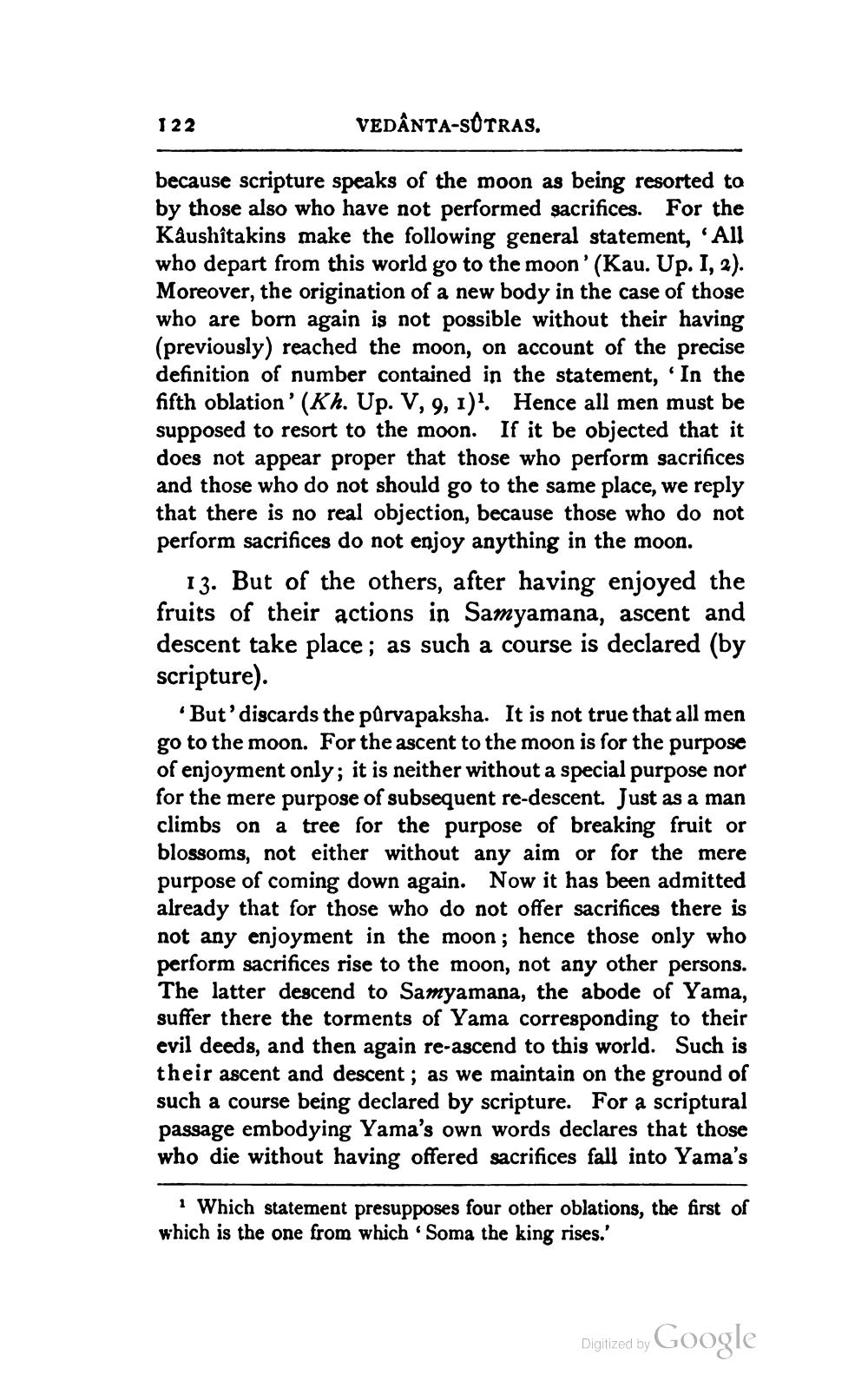________________
VEDANTA-SUTRAS.
because scripture speaks of the moon as being resorted to by those also who have not performed sacrifices. For the Kâushitakins make the following general statement, 'All who depart from this world go to the moon' (Kau. Up. I, 2). Moreover, the origination of a new body in the case of those who are born again is not possible without their having (previously) reached the moon, on account of the precise definition of number contained in the statement, 'In the fifth oblation' (Kh. Up. V, 9, 1)1. Hence all men must be supposed to resort to the moon. If it be objected that it does not appear proper that those who perform sacrifices and those who do not should go to the same place, we reply that there is no real objection, because those who do not perform sacrifices do not enjoy anything in the moon.
122
13. But of the others, after having enjoyed the fruits of their actions in Samyamana, ascent and descent take place; as such a course is declared (by scripture).
'But' discards the purvapaksha. It is not true that all men go to the moon. For the ascent to the moon is for the purpose of enjoyment only; it is neither without a special purpose nor for the mere purpose of subsequent re-descent. Just as a man climbs on a tree for the purpose of breaking fruit or blossoms, not either without any aim or for the mere purpose of coming down again. Now it has been admitted already that for those who do not offer sacrifices there is not any enjoyment in the moon; hence those only who perform sacrifices rise to the moon, not any other persons. The latter descend to Samyamana, the abode of Yama, suffer there the torments of Yama corresponding to their evil deeds, and then again re-ascend to this world. Such is their ascent and descent; as we maintain on the ground of such a course being declared by scripture. For a scriptural passage embodying Yama's own words declares that those who die without having offered sacrifices fall into Yama's
1 Which statement presupposes four other oblations, the first of which is the one from which 'Soma the king rises.'
Digitized by Google




